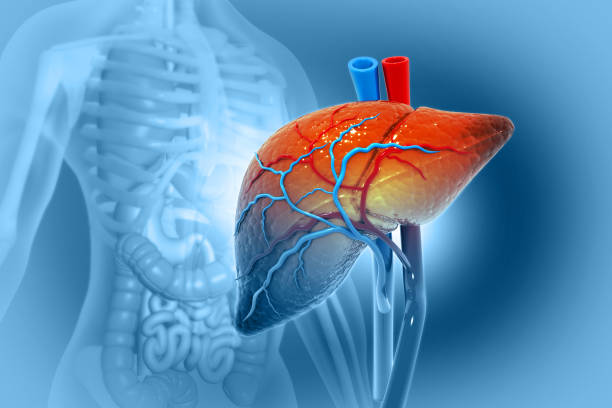In this article, we will take an in-depth look at the different types, their respective symptoms, and the treatments available. We will also discuss prevention methods and the importance of getting tested for hepatitis. By the end of this article, you will have a thorough understanding of the different types of hepatitis, their symptoms, and how to best protect yourself from infection.There are five types of hepatitis that can affect adults, and each has its own set of symptoms and risks. The most common types of hepatitis are A, B, and C. Types D and E occur less often, and are found only in areas where people are exposed to infected blood. Here are the five types of hepatitis that you should be aware of
.jpg)
- Hepatitis A - This is the most common type of hepatitis, occurring worldwide particularly in areas with poor sanitation. It is transmitted via food or water that has been contaminated with fecal matter. Hepatitis A is rarely fatal, and most people recover within a few weeks. However, patients can be infectious for several weeks before they show any symptoms.
- Hepatitis B - This type of hepatitis is transmitted via contact with infected blood, such as through shared needles or any sort of unprotected sexual contact. It can also be transmitted from a mother to her baby during childbirth. Hepatitis B can be fatal if not treated, and can lead to chronic liver disease and cirrhosis if left untreated.
- Hepatitis C - This type of hepatitis is very common in adults who have an intravenous drug habit, as well as patients who have received blood transfusions before the practice of testing donors for hepatitis was commonplace. Hepatitis C can cause chronic disease, and patients are often treated with a combination of anti-viral drugs and interferon injections.
- Hepatitis D - This is a type of hepatitis that occurs only in patients who have hepatitis B. Hepatitis D can lead to hepatitis C if left untreated.
- Hepatitis E - This is the least common type of hepatitis, and is most common in areas where there is a high rate of fecal contamination of water. It occurs most commonly in pregnant women, infants, and the elderly.Source
The symptoms of hepatitis are different depending on the type of hepatitis. In general, they include
- Jaundice - This is a yellowing of the skin and eyes, and is due to the buildup of bile within the liver. This symptom is most common in hepatitis types A and B.
- Gastrointestinal symptoms - This can include nausea, vomiting, and abdominal pain. This is most common in hepatitis types A and E.
- Fatigue - This is a general feeling of tiredness that can last for long periods of time. This is common in hepatitis types B and C. Hepatitis can also cause joint pain and itching, but these are less common symptoms.

The best treatment for hepatitis depends on the type of hepatitis. In general, physicians will recommend rest, drinking lots of fluids, and avoiding foods that cause abdominal pain. In severe cases, patients may be treated with an interferon injection. Antiviral medications can effectively treat hepatitis B and C, but are less effective for types A and E. Patients with hepatitis A who do not respond to rest and fluids may be given an oral vaccine to prevent them from developing chronic liver disease.source
The best way to prevent hepatitis is to avoid contact with infected blood and contaminated food and water. Here are some tips you can use to protect yourself from hepatitis - Wash your hands often with soap and water or use an alcohol-based hand sanitizer. When preparing food, avoid eating raw fruits and vegetables that might have been contaminated with fecal matter. Wash fruits and vegetables thoroughly before consuming them. When traveling abroad, seek out bottled water and avoid eating unpeeled fruits and vegetables. Avoid eating food that has been prepared by an unhygienic street vendor. Avoid sexual contact. Using a condom can greatly reduce your risk of contracting hepatitis.
Getting tested for hepatitis is important for several reasons. First, it can rule out the possibility that you have contracted the condition. It can also identify whether you have a chronic form of the disease. Finally, it can help you and your doctor determine which treatment is best for you. If you believe you have symptoms of hepatitis, it is important to get tested as soon as possible. If you wait too long, the virus can damage your liver and the results will be inaccurate. If you have an ongoing medical condition that requires regular blood transfusions or injections, it is important to get tested for hepatitis, as you are at a higher risk for contracting the disease. If you engage in risky sexual contact or use intravenous drugs, it is also important to get tested for hepatitis. Finally, if you are planning to get pregnant, it is important to get tested, as hepatitis can be transmitted to your baby during childbirth
Conclusion
Hepatitis is a serious medical condition that affects the liver. It is caused by a virus, and can range from a mild, short-term illness to a chronic, life-long condition. There are several types of hepatitis, each with its own set of symptoms and treatments. In this article, we will take an in-depth look at the different types, their respective symptoms, and the treatments available. We will also discuss prevention methods and the importance of getting tested for hepatitis. By the end of this article, you will have a thorough understanding of the different types of hepatitis, their symptoms, and how to best protect yourself from infection.
https://www.cdc.gov/hepatitis/abc/index.htm#:~:text=Hepatitis%20means%20inflammation%20of%20the,medical%20conditions%20can%20cause%20hepatitis.
https://www.healthline.com/health/hepatitis
https://en.m.wikipedia.org/wiki/Hepatitis
https://www.mayoclinic.org/diseases-conditions/hepatitis-a/symptoms-causes/syc-20367007
https://www.webmd.com/hepatitis/default.htm

Congratulations @princeraj1! You have completed the following achievement on the Hive blockchain And have been rewarded with New badge(s)
Your next target is to reach 1500 upvotes.
You can view your badges on your board and compare yourself to others in the Ranking
If you no longer want to receive notifications, reply to this comment with the word
STOPCheck out our last posts:
Support the HiveBuzz project. Vote for our proposal!